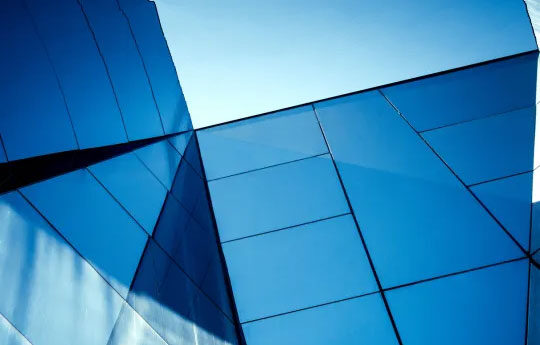Shanta Holdings is redefining Bangladesh’s skyline with climate-smart, profitable urban development. By embedding green technologies and resource-conscious designs, Shanta has reduced energy and water costs in a resource-constrained environment, while enhancing long-term asset value. Its pioneering projects demonstrate that sustainability is not just a responsibility, it is an opportunity to attract global clients, deliver premium returns and build a resilient future.

Risha Musrat Shefa
Programme Planning and Development Executive,
Shanta Holdings
In the bustling streets of Dhaka, amid towering corridors of concrete and the relentless pace of urban life, a building that exudes tranquillity, safety and minimalistic elegance will almost certainly bear the name Shanta on its façade. For over three decades, Shanta Holdings has redefined Bangladesh’s urban skyline, emerging as the country’s leading real estate developer with a powerful portfolio of commercial and residential icons.
At the heart of Shanta’s journey lies sustainability, which is not only seen as a social responsibility but also as a major economic strategy. By embedding green technologies, energy-efficient systems and resource-conscious designs into its projects, Shanta has demonstrated the growing opportunity of climate-smart investments to enhance profitability, asset value and long-term savings for both investors and occupants.
Reducing energy costs through innovative designs
According to the Sustainable and Renewable Energy Development Authority (SREDA), the real estate sector accounts for nearly 40% of Bangladesh’s total energy consumption. With energy prices rising steeply in recent years, reducing consumption has become a financial priority for businesses and households alike.
Shanta has responded by pioneering the integration of energy-efficient Heating, Ventilation, and Air Conditioning (HVAC) systems, natural lighting strategies, and renewable energy solutions across its portfolio. These innovations reduce energy bills by 20–40% compared to conventional designs, delivering substantial long-term savings for tenants and investors.
This approach has also strengthened Shanta’s ability to attract high-profile commercial clients seeking cost-efficient and climate-resilient infrastructure. Properties such as Shanta Western Tower, Shanta Forum have become hubs for multinational corporations, including Unilever Bangladesh, Meghna Group, Robi Axiata Limited, Syngenta and Inditex.
Addressing water scarcity through conservation technology
Water management is another critical area where Shanta has translated climate action into measurable value. As of 2021, 87% of the city’s water demand is met by groundwater, which is declining at an alarming rate of 2–3 meters per year.
To safeguard both residents and investors against future risks, Shanta incorporates rainwater harvesting, grey water treatment, water treatment plant (WTP) and sewage treatment plant (STP) wastewater recycling, and low-flow fixtures into its building designs. These systems reduce water bills by 30–50%, while providing long-term resilience against potential water crises. This serves as a testament to the long-term resource security for both clients and investors, ultimately enhancing Shanta’s credibility.
Long-term asset value through quality and durability
Sustainability at Shanta is not just about lowering operating costs; it is also about protecting and enhancing the long-term value of property. By sourcing premium, durable materials with a focus on sustainability, Shanta extends the lifecycle of its developments, reducing the frequency of repairs and major renovations, translating into lower maintenance costs for owners and higher resale and rental values for investors.
The Forum: Shanta’s futuristic icon
At the heart of one of Dhaka’s busiest neighbourhoods stands ‘Forum’, the pioneer of climate-conscious commercial architecture in Bangladesh. Designed in alignment with the country’s national climate goals, the building’s design is capable of optimising energy use, reducing carbon emissions and enhancing urban resilience.
The landmark features double-glazed, low-energy and heat-resistant glass, which ensures excellent thermal insulation exceeding the widely recognised ASHRAE 90.1 energy efficiency standard for buildings. In addition, the high-performance glazing keeps the U-value – which measures how much heat passes through a building – within a competitive range of 1.60–1.71 W/m²K.The design is carefully balanced to limit the heat from the sun and combined with highly efficient cooling systems that use a modern, planet-friendly refrigerant. They also let in the perfect amount of natural light, which keeps the temperature steady and fills the interior with comfortable daylight. This cuts down on harsh glare and significantly reduces the need for electric lights, saving enormous amounts of energy.
The adoption of energy-efficient systems combined with low maintenance requirements has led to substantial cost savings, boosting premium rental returns and ensuring sustainable yields. This is the reason why Shanta Forum was able to attract some of the most renowned multinational clients across the country.
A vision for the future
By aligning climate action with financial efficiency, Shanta has cemented its leadership in Bangladesh’s premium real estate market. Its eco-friendly designs have enabled the group to achieve premium pricing across both residential and commercial projects, maintain high occupancy rates with blue-chip corporate tenants and build trust among climate-conscious homebuyers and investors. As global and local demand for sustainable real estate continues to rise, Shanta’s foresight in embedding green technology positions it to capture even greater market share in the years ahead.
Looking ahead, Shanta Holdings is determined to scale its impact. With innovative designs, advanced green technologies, and mindful architecture, the company envisions not only maintaining its leadership in Bangladesh’s real estate market but also setting new benchmarks in the region for climate-smart, profitable urban development. By embracing climate action as a driver of profitability and resilience, Shanta Holdings is not just building properties; it is building the future.
2025 is a critical year for the Paris Agreement. Ten years on, we need to rethink how we frame the challenge. And seeing challenges differently is what business and we are all about.
ICC is committed to securing what businesses need at the upcoming climate negotiations, COP30, in Belém, Brazil. Learn more about our Opportunity of a Lifetime climate campaign and how to get involved.
*Disclaimer: The content of this article may not reflect the official views of the International Chamber of Commerce. The opinions expressed are solely those of the authors and other contributors.











